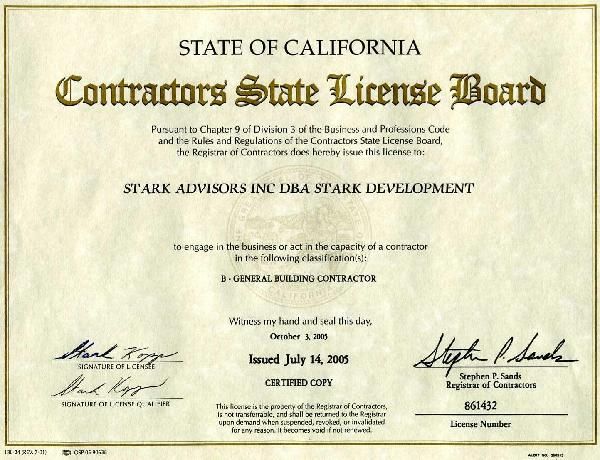
Now that you’ve decided to start a contracting business, it may be tempting to skip the “red tape” so you can get right to work, but skipping on insurance or required licenses is just asking for trouble. Many states use professional licensing and insurance to ensure contractors are competent and ethical before they are given permission to practice. If you forego these professional obligations, you’re jeopardizing your integrity, risking your business—and you may be breaking the law.
Professional licensing
Licensing is a way to regulate people who can cause harm through the malpractice and misconduct of their trade. States often require licensing of professionals in real estate, finance, and engineering. In many states, construction professionals including building contractors, electricians, mechanical contractors, and plumbers are also required to have a professional license. Swimming pool contractors and roofing contractors may also need a professional license. Because each state has unique professional licensing requirements, it’s your job to research the requirements and then meet them.
Get Your Money’s Worth
Once your license is in place, toot your own horn by steering potential clients to your state’s contractor licensing website so they can verify your compliance and see the names of contractors who have been disciplined by the licensing board.
Insurance
Construction jobsites can be dangerous places, so not surprisingly, many states require contractors to purchase insurance. For example, most states require contractors to purchase workers’ compensation insurance. General liability insurance may also be required. Insurance helps protect you from lawsuits, regardless of whether these lawsuits have merit. Remember, you can be very professional, perform high-quality work, and adhere to vigorous safety standards—and still get sued.
Workers’ compensation
Workers’ compensation insurance covers the cost of medical, disability, and death claims of employees who suffer job-related injuries or illness. Workers’ compensation also covers the costs of physical rehabilitation and vocational retraining needed to help an employee return to work. Even when workers’ compensation is not required, many businesses voluntarily purchase this insurance to lessen their risk. For example, if your employee is not covered by workers’ compensation insurance and is injured on your jobsite, he may be unable to pay the medical expenses owed to the hospital and physician. As a result, the unpaid health-care providers and the injured workers may file a lawsuit against you as a means to cover costs associated with the injury.
Because your clients may also be named in a lawsuit, you should tell any potential clients that you are compliant with state requirements. Also tell them that your policy status, including any authorized exemptions, can be verified at your state’s Workers’ Compensation Division website.
General liability
Whereas workers’ compensation insurance protects against the cost of your employee’s job-related injury or illness, general liability insurance protects against claims from the general public. For example, let’s say Joe Public steps on a nail dropped by your roofing company. If Joe Public seeks compensation, your general liability insurance covers Joe’s medical and disability expenses. And surprisingly, some claims are made and won by people who trespass on a jobsite and are subsequently injured. The claimants may state that the jobsite was poorly marked and unsecure. The property damage portion of your general liability policy protects you from damages resulting from your work.
Unlike workers’ compensation coverage, general liability coverage is not as highly regulated, so most state insurance divisions do not provide coverage information. Tell potential clients that you will have your insurance company send the insurance certificate directly to them and they should ask all other potential contractors to do the same. Let them know that this direct transfer of information is critical because forged certificates are common.
Fine Homebuilding Recommended Products
Fine Homebuilding receives a commission for items purchased through links on this site, including Amazon Associates and other affiliate advertising programs.

8067 All-Weather Flashing Tape

Handy Heat Gun

Affordable IR Camera
























View Comments
I would think contractors would also want Errors and Ommissions coverage.
My (Florida) insurance agent informed me that residential contractors are unable to get E&O coverage. Although a commercial contractor can, many do not because of the expense.